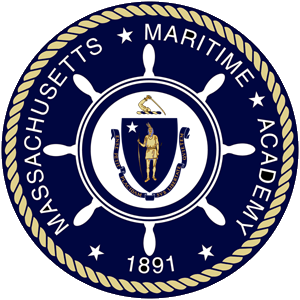OICEW Task 4.3.A
Prepare steam turbine for operation
MMA Method
In order to satisfy NVIC 17-14 Task 4.3.A , MMA students must:
- Successfully complete MMA Assessment OICEW-5-1L Prepare main steam turbine for operation
NVIC Method
See NVIC method.
| STCW Competence |
Knowledge, Understanding, and Proficiency |
|
Operate main and auxiliary machinery and associated control systems
|
OICEW-A4.3 Preparation, operation, fault detection and necessary measures to prevent damage for the following machinery items and control system
Main engine and associated auxiliaries
|
| Condition | Behavior | Standard |
|---|
|
On a steam vessel of at least 1,000 HP, on simulator, or in a laboratory,
|
the candidate assists in starting a main propulsion turbine engine, describing the actions as they are being performed.
Note 1
A candidate who does not perform this task will receive an endorsement that is not valid for steam vessels.
|
The candidate:
Starts the main lube-oil pump; Verifies that there is flow through the gravity tank overflow line using the sight-glass; Verifies that there is lube-oil flow to all main-engine bearings; Engages the jacking gear to the main engine; Makes notification of jacking gear status; Turns on jacking-gear motor; Establishes steam flow to the gland-seal regulator and adjusts it to recommended levels; Starts the gland exhaust condenser fan; Verifies that the main circulator high-suction and overboard-discharge valves are open; Starts the main circulator pump; Opens the main-condenser saltwater header vents until flow is observed; Verifies that main condensate pump suction and discharge stop valves are open; Verifies that main condensate pump vent line valve is open Starts the main condensate pump; Opens the inlet/outlet valves to both the first and second stage air-ejector elements; Lines up steam to the air-ejector pressure reducing station; Opens the steam root valve to the second stage main air- ejector element; Observes progressive increase in vacuum; Inspects the entire system for proper operation; Correctly describes actions as they are being performed; and Takes proper action to prevent safety and pollution violations.
|
